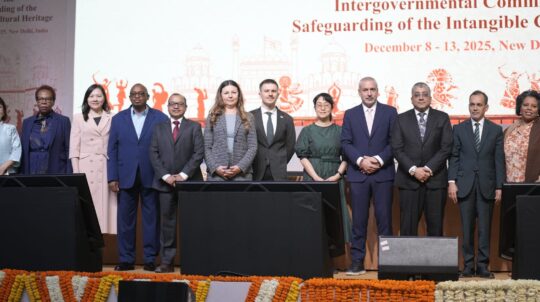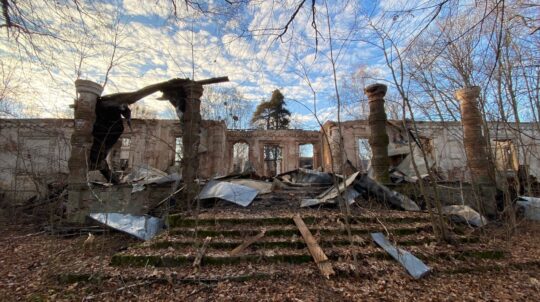On August 15, Acting Minister of Culture and Strategic Communications of Ukraine, Tetyana Berezhna, met with the Chargé d’Affaires of the Republic of Poland in Ukraine, Piotr Łukasiewicz. The meeting was also attended by Deputy Ministers Andrii Nadzhos and Anastasia Bondar.
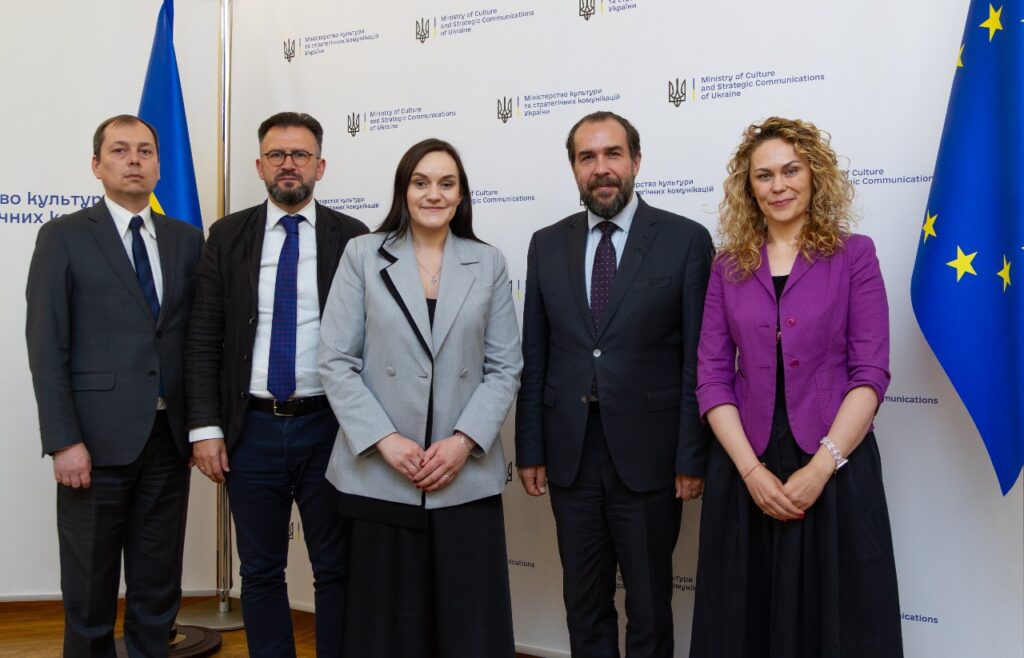
Tetyana Berezhna expressed her gratitude to Poland for its continued support of Ukraine since the beginning of russia’s full-scale invasion, as well as for the constructive dialogue on the preservation of historical memory. She emphasized that political factors must not hinder the fair and respectful commemoration of the deceased.
“The preservation of historical memory and dignified treatment of every human life form the foundation of our cooperation. Ukraine values Poland’s willingness to work together in this area. Culture and memory are what unite us”, she stated.
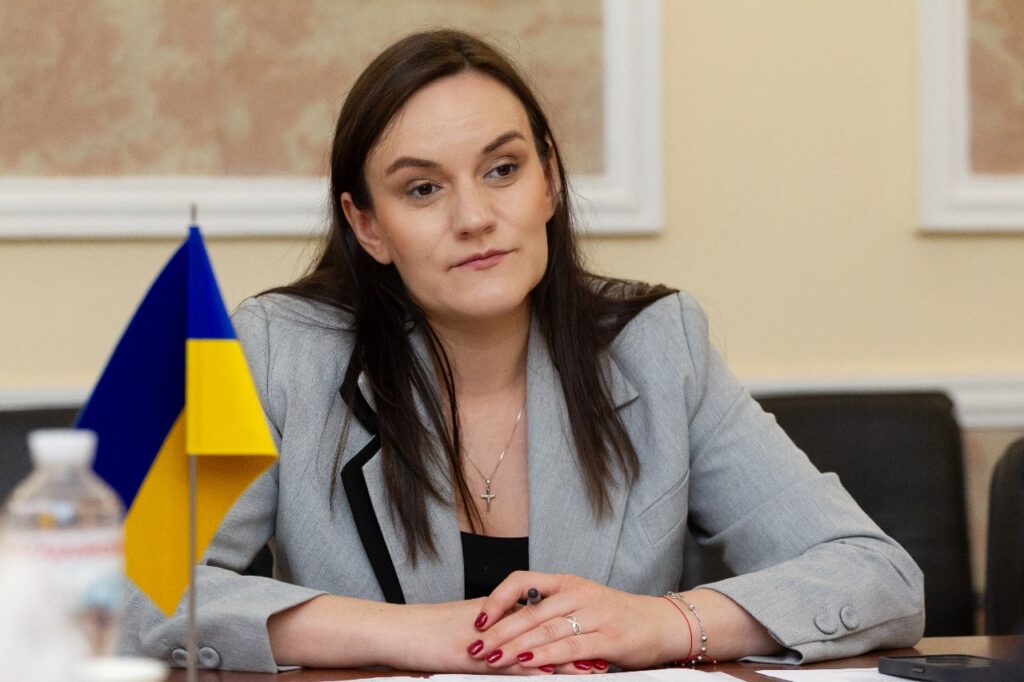
Deputy Minister for European Integration, Andrii Nadzhos, informed the Polish side about the progress of exhumation work at the site of the former village of Stari Zboishcha.
The parties also discussed preparations for the reburial ceremony of human remains discovered during search operations in the area of the former village of Puzhnyky. They touched upon the potential participation of relatives of the deceased, members of the clergy, and high-level officials from both countries.
Additionally, the organization of a forthcoming meeting between the Ministers of Culture of Ukraine and Poland was discussed.
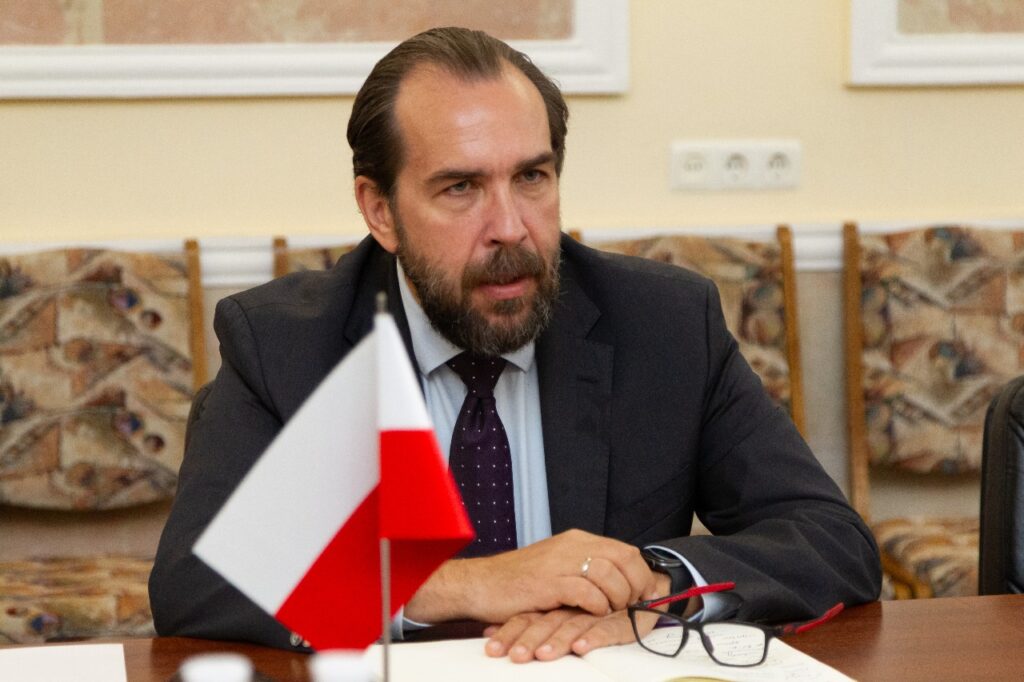
The participants paid particular attention to the outcomes of the Ukraine Recovery Conference (URC2025), which took place in July in Rome, and the importance of beginning preparations for URC2026 in Poland as soon as possible.
Tetyana Berezhna outlined the key cultural initiatives launched as part of URC2025, including the establishment of the Ukrainian Cultural Heritage Fund, the launch of the CURE cultural recovery platform, and the formation of the Cultural Resilience Alliance. She invited the Polish side to join these initiatives.
Deputy Minister for Digital Development, Digital Transformations and Digitalization, Anastasia Bondar, emphasized the value of Poland’s experience in modernizing the museum sector and developing digital cultural projects. She highlighted the fruitful cooperation with the Polish Ministry of Culture and National Heritage in implementing joint digitalization initiatives and in supporting the creation of Ukraine’s Electronic Museum Collection Management System.
The parties also discussed prospects for museum cooperation, particularly involving the National Museum of the History of Ukraine in the Second World War and the Polish History Museum. Potential areas of collaboration included exchange of exhibitions, joint curatorial projects, and shared research activities.
